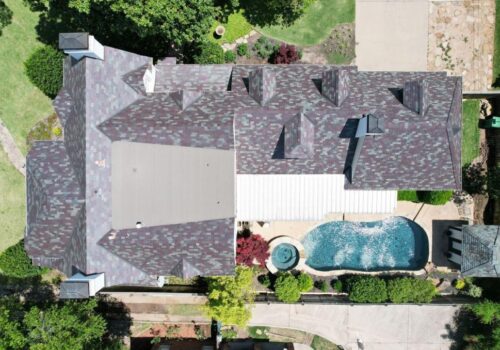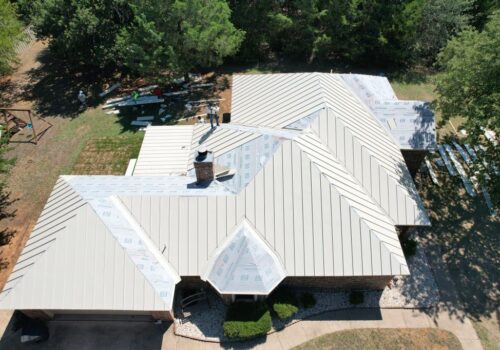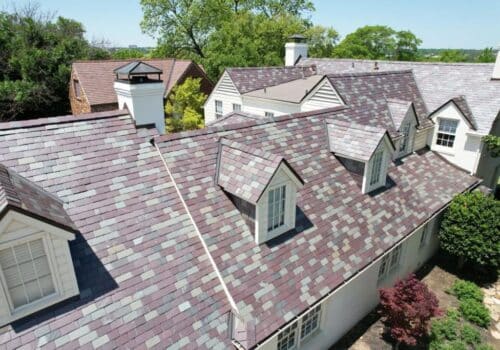Tile roofs have been a popular choice for homeowners for centuries and good reason. They offer durability, beauty, and a range of benefits that make them a worthwhile investment. In this article, we will delve into the world of tile roofs, exploring their types, advantages, factors to consider when choosing one, and essential installation and maintenance tips. Whether you're considering a new roof or simply want to learn more about the different types of tile roofs, this comprehensive guide will provide you with all the information you need.
Understanding Tile Roofs
Tile roofs are roofing systems made of individual overlapping tiles. These tiles can be made from various materials such as clay, concrete, slate, or composite. Tile roofs have a distinctive look that adds character to any home. They have a long history and have evolved to become more durable and aesthetically pleasing.
Advantages of Tile Roofs
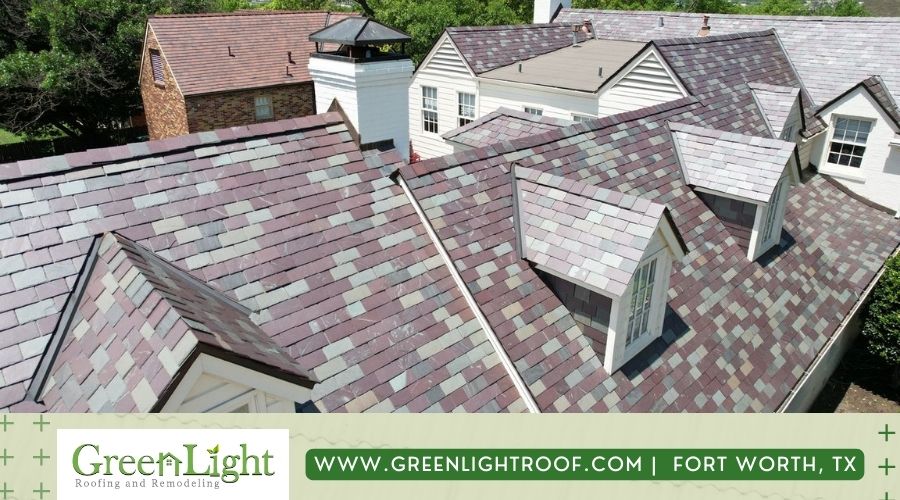
Tile roofs offer numerous advantages that make them an attractive choice for homeowners. Firstly, they are incredibly durable and can last for several decades, outperforming many other roofing materials. This longevity makes them a cost-effective option in the long run.
Additionally, tile roofs are energy efficient. They have natural insulation properties that help regulate the temperature inside the house, reducing the need for excessive heating or cooling. This energy efficiency can lead to significant savings on utility bills.
The aesthetic appeal of tile roofs is another major advantage. They come in a variety of styles, colors, and textures, allowing homeowners to find the perfect match for their architectural style. Tile roofs can enhance the curb appeal of a home and increase its value.
Lastly, tile roofs are fire-resistant. This is especially important in areas prone to wildfires or regions with strict fire safety regulations. The non-combustible nature of tile roofs provides an added layer of protection for homes and gives homeowners peace of mind.
Common Types of Tile Roofs
There are several types of tile roofs available, each with its unique characteristics and benefits. The most common types include clay tile roofs, concrete tile roofs, slate tile roofs, and composite tile roofs.
- Clay Tile Roofs: Clay tiles are known for their natural beauty and timeless appeal. They are made from natural clay and come in various shapes and sizes. Clay tile roofs are durable, energy-efficient, and require minimal maintenance.
- Concrete Tile Roofs: Concrete tiles are versatile and can mimic the appearance of other roofing materials such as clay or slate. They are more affordable than clay tiles and offer excellent durability and weather resistance.
- Slate Tile Roofs: Slate tiles are renowned for their elegance and sophistication. They are made from natural stone and are incredibly durable. Slate tile roofs can last for generations and add a touch of luxury to any home.
- Composite Tile Roofs: Composite tiles are a modern alternative that combines the benefits of different materials. They are usually made from a mixture of plastic, rubber, and other recycled materials. Composite tile roofs are lightweight, eco-friendly, and highly customizable.
Factors to Consider When Choosing a Tile Roof
When selecting a tile roof for your home, it's important to consider various factors to ensure you make the right choice. Here are some key considerations:
- Climate and Weather Considerations: Different types of tile roofs perform differently in various climates. Consider the weather conditions in your area, such as temperature extremes, rainfall, wind, and hail. Choose a tile roof that can withstand the local climate effectively.
- Style and Architectural Compatibility: The style of your home and its architectural features should influence your choice of a tile roof. Consider the color, texture, and shape of the tiles to ensure they complement the overall aesthetic of your home.
- Budget and Cost Considerations: Tile roofs can vary significantly in price. Consider your budget and the long-term value when selecting a tile roof. Remember to factor in the cost of installation and potential maintenance requirements over time.
- Maintenance Requirements: While tile roofs are generally low-maintenance, different materials may have specific care requirements. Consider the time and effort you are willing to invest in maintaining your roof and choose a tile type that suits your lifestyle.
Installation and Maintenance Tips for Tile Roofs
Proper installation and regular maintenance are essential to ensure the longevity and performance of your tile roof. Here are some tips to follow:
- Hiring a Professional Installer: Tile roofs require skilled installation to ensure proper alignment, weatherproofing, and durability. Hire a reputable roofing contractor with experience in installing tile roofs.
- Proper Underlayment and Flashing: The underlayment and flashing beneath the tiles play a crucial role in protecting your roof from moisture and leaks. Ensure high-quality underlayment and proper flashing installation for optimal performance.
- Regular Inspections and Maintenance: Schedule regular roof inspections to identify any issues early on. Clean debris, remove moss or algae, and replace or repair damaged roof tiles promptly. Regular maintenance will prolong the lifespan of your tile roof.
- Cleaning and Moss Prevention: Tiles can accumulate dirt, debris, and moss over time. Regular cleaning can prevent the buildup of these substances, preserving the appearance and functionality of your roof. Use the appropriate cleaning methods recommended for your tile type.
Conclusion: Types of Tile Roofs
Tile roofs offer a range of benefits, including durability, energy efficiency, aesthetics, and fire resistance. By understanding the various types of tile roofs available, considering key factors when choosing one, and following proper installation and maintenance practices, homeowners can enjoy the advantages of tile roofs for many years to come.
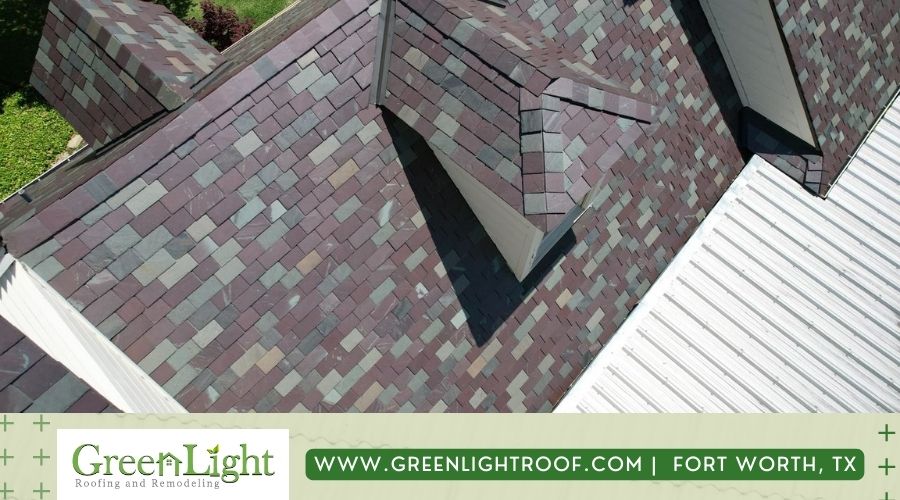
FAQs About Types of Tile Roofs
Are tile roofs suitable for all types of climates?
While tile roofs can perform well in various climates, it's important to consider the specific weather conditions in your area and choose a tile type that can withstand them effectively.
How long can a tile roof last?
With proper installation and maintenance, tile roofs can last for several decades, often outperforming other roofing materials in terms of longevity.
Are tile roofs more expensive than other roofing options?
The cost of tile roofs can vary depending on the material and style chosen. While they may have a higher upfront cost compared to some roofing options, their durability, and long-term value often make them a cost-effective choice.
Can I install a tile roof myself?
It is generally recommended to hire a professional roofing contractor with experience in installing tile roofs. Proper installation is crucial for ensuring the roof's performance and longevity.
Do tile roofs require special maintenance?
While tile roofs are generally low-maintenance, regular inspections, cleaning, and prompt repair of any damage or leaks are important to maintain their functionality and appearance.



